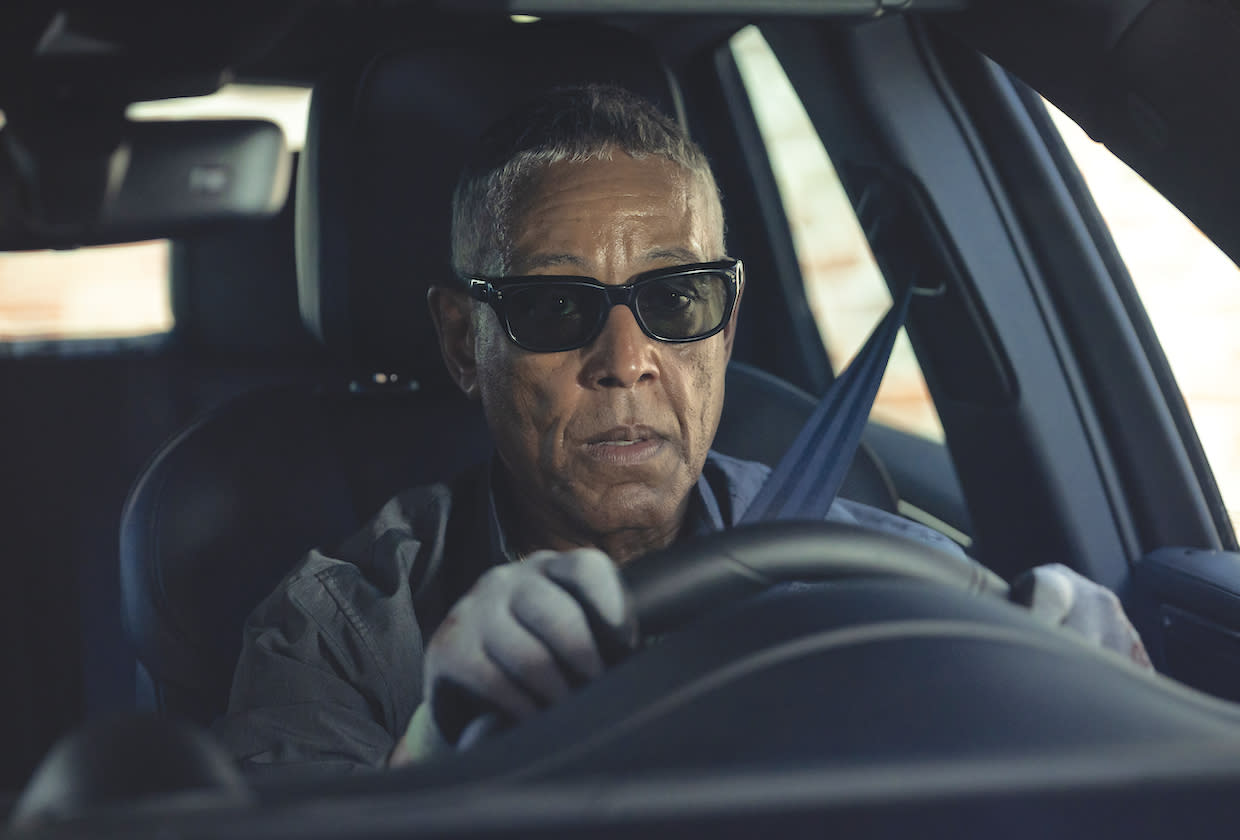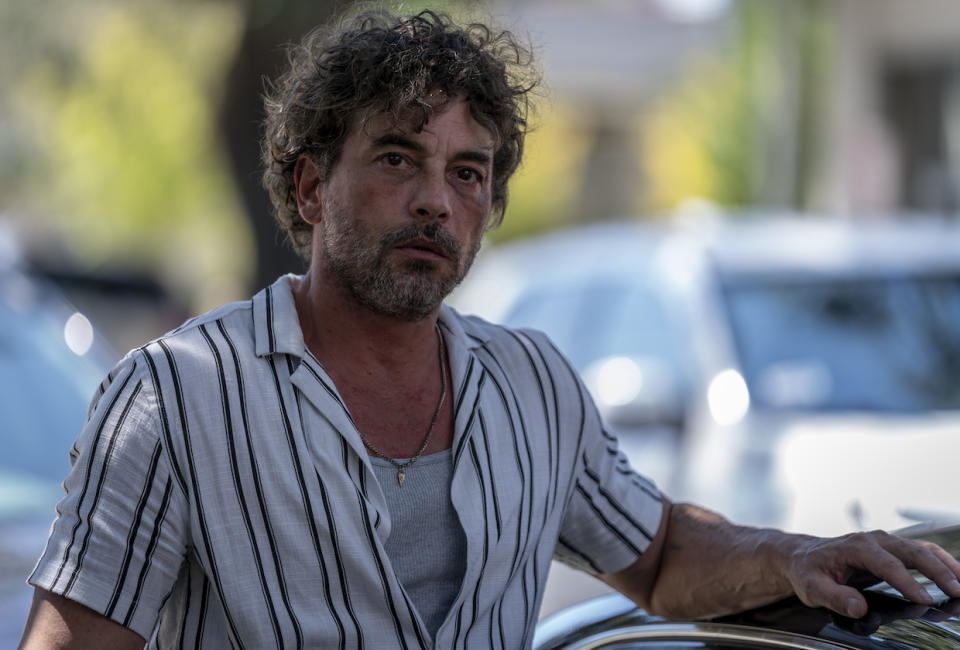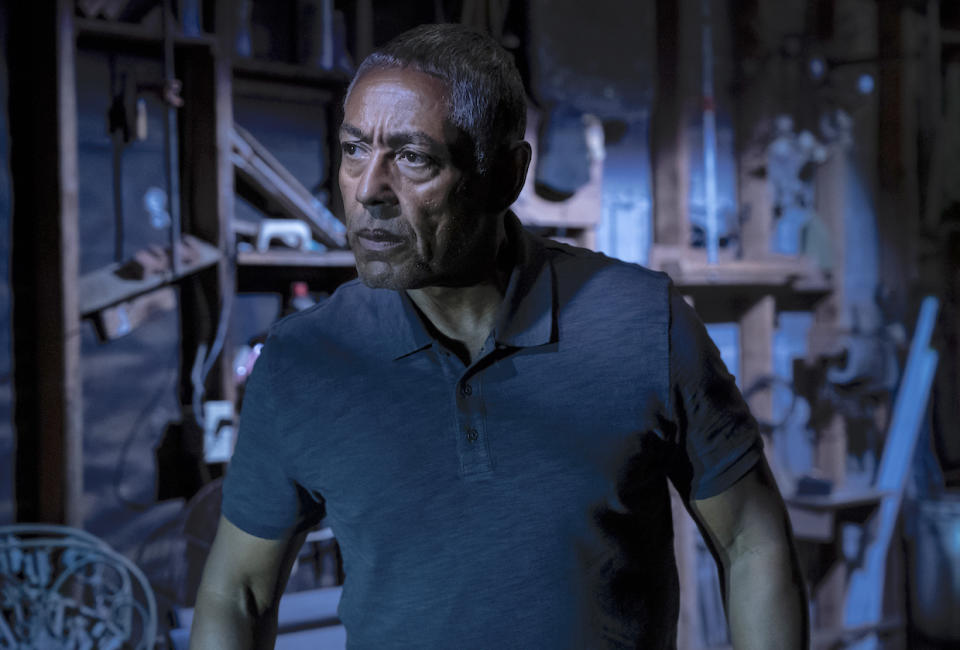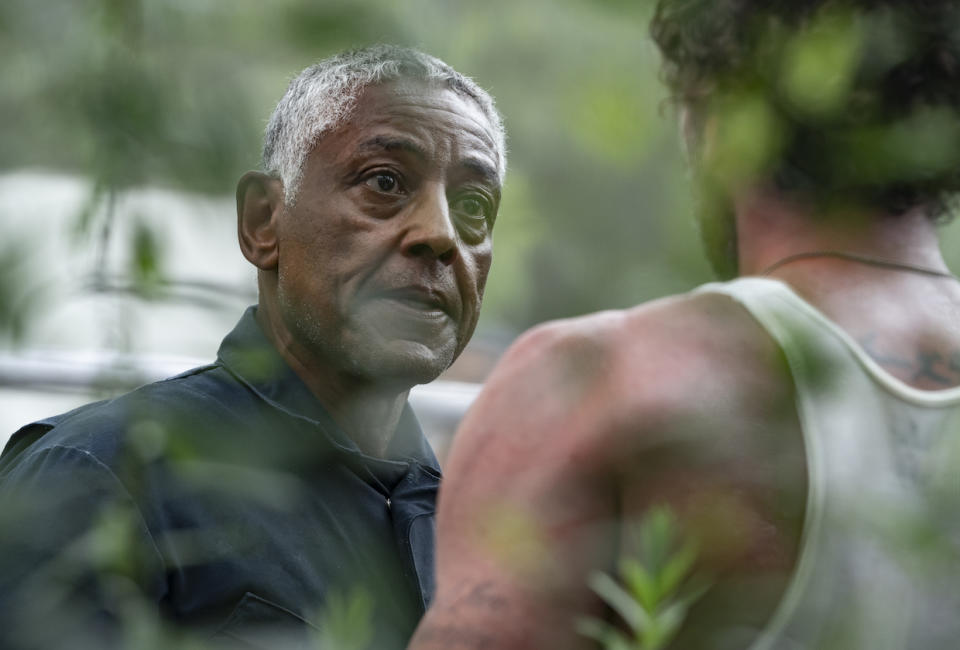Parish Premiere: Giancarlo Esposito Exorcises His Demons for a Story He ‘Needed to Tell’

It’s always that one last job where things tend to go haywire.
In the premiere of AMC’s new crime drama Parish, Giancarlo Esposito stars as Gracián “Gray” Parish, a family man down on his luck following the murder of his son Maddox. He’s also a driver with a shady criminal past, much of which his family, wife Ros and daughter Michaela, know nothing about. Despite major financial troubles and a flailing business that may lead to the loss of their New Orleans home, it only takes minutes for us to realize that Gray’s struggles are far more than just monetary.
More from TVLine
Star Trek: Discovery's Season 5 Premiere Easter Egg Explained: Who Are the [Spoiler]?
TWD: Dead City Casts Sons of Anarchy's Kim Coates in Pivotal Season 2 Role
“Gray is an ‘every man’ struggling to deal with the loss of his son and solve his son’s murder,” Esposito tells TVLine. “He’s disconnected from his family for many reasons because he’s so under pressure and unable to verbally communicate the kind of pain he’s feeling inside. He’s an ‘every man’ striving to become an extraordinary man. He just doesn’t know that that’s what he has to do to get out of the situation he’s in.”
As he’s trying to figure out his next move, an old friend from his past comes knocking with an offer Parish tries to refuse. Colin (played by Skeet Ulrich) served 17 years in the slammer, partly due to his refusal to rat on Parish after a past job went sideways. So things get complicated when Colin says he needs help picking up a package for his boss. A simple lift. In and out. If Parish agrees to drive.

The boss is a man named Shepherd Tongai (Zackary Momo), but everyone calls him “The Horse.” Parish sees right through the whole ordeal: Colin is in debt to an international gangster and he wants no part of it. But after some careful consideration about what he’s lost and what he still has left to lose, our titular (anti?)hero has a change of heart, one he’ll ultimately come to regret.
“It’s an opening to the world that he’s hiding, which is his previous incarnation as a getaway driver and possibly even more: an ideas man, a heist guy, a guy who could think through the plan and execute it,” Esposito explains. “So when Colin invites him, it’s the opportunity to get out of debt, to save his business, to get, retrieve and recover his pride and his self-worth and self-esteem and self-value. It may be a way for him to gain respect again from his family. He can’t figure out how to get out of his depression. He can’t provide for his family, so what good is he?
“So as we start to uncover what his past is, we realize maybe he’s not a good man. We want him to be in control of his integrity and his morals, but he’s a man who has to say, ‘I’m tired of being a passenger in my own life. I’m tired of letting the world push me around and tell me what to do. I’m tired of not having and not being able to provide.’ And so he takes [the job] because he feels like that’s a way out.”
Meanwhile, Parish continues to suffer silently over the death of his son, but he’s simultaneously neglecting to acknowledge his family’s needs. During a dinner to celebrate Maddox’s first birthday since his death, Parish gets into an argument with his daughter, who takes umbrage with her dad placing her brother’s photo on the dinner table. “It still feels like it just happened,” he tells the young girl, who’s surprised that he “even showed up this time.”
“We all grieve differently and some of us want to forget because you can’t bring back,” says Esposito. “But what if you don’t know what happened? And this is a major theme in our piece. How much do we have to know of what happened when you’re not going to get the person who’s lost back?”

While we viewers aren’t (yet) privy to all of the details surrounding Maddox’s murder, there are plenty of aspects about the event that remain a mystery even to the family. All of that adds weight to their home-life and grieving processes, making it that much more difficult to move on.
“The story’s a lot about family and yes, they’re processing loss very differently,” he adds. “But that’s the nature of trauma. We stay and live in that trauma and it’s hard to let go of until we do the work of letting it go. Parish also has a secret within, not only the trauma from losing his son. He has trauma from a past existence that he didn’t share with his family. I had an idea that it’s the ghost. He’s a ghost to himself.”
“This ‘every man’ is suffering, but he’s getting through life in his suffering,” the actor says. “To put this into a story that is exciting and not preachy, you want to go on the journey because you want him not to suffer too. You’re hoping that so that you can be out of your suffering. ‘How did he do it?’ That’s how we teach each other and inspire each other and are examples for each other. So this has become something that I love because it’s not only an exciting story, but it shows how we as a family interact and deal with pain, happiness, sadness, depression, how we speak to each other, how we help each other, how we refuse to listen and want to do it our way, and how we sometimes have to shut up until we’re ready to hear it.”

Esposito reached far back into his own troubled past to inform his performance. His own parents were divorced. His mom raised and cared for him despite “being involved in her own world.” His father never reached out to him. When he became a parent of four himself, he was no stranger to his own financial burdens. He went bankrupt twice and lost two houses, in addition to multiple antique cars and motorcycles. These real-life struggles helped him add authenticity to his character’s tale.
“I gave up everything to have my family survive,” he says. “That is part of the story that impacts me very deeply because it’s about sacrifice. ‘What do I have to sacrifice for my family to survive?’ And when I was sitting in Connecticut trying to figure out how to get work and make ends meet and realizing I had a big insurance policy on me, I thought the way to do this was to let my life go. Sacrifice my life so my kids could get to college, so that they could have a life. That’s a horrible thing to think. How horrible that would have been if I had kept going down that route. So a lot of the attitude of Parish came out of me living and I needed to tell the story to exorcise that demon, to let go of the depth of that trauma, of that absolutely horrible thinking, and to regain my self-esteem to know that I was good enough to make it because I had talent.”
Parish’s life gets even more complicated once he officially accepts Colin’s offer. Parish picks up a man and brings him to an office building, where he and Colin retrieve a mysterious bag from a case. But when the guy botches the access code, sirens start to wail and police begin to swarm. Parish thinks on his feet. He creates a distraction, swaps vehicles, ditches his burner phone, and picks up his comrades (bag in hand) around the corner.
But The Horse isn’t happy with all that police activity. In the episode’s tense final moments, The Horse’s brother Zenzo brutally kills the man with a sword. Parish tries to refuse payment for the job, but when that’s not an option, he accepts and tells The Horse that he’ll clean the entire mess up. Unfortunately for Parish, that won’t be the last he’ll see of the Tongai brothers.
Reflecting on the series and the five additional installments to come (the season finale is set for May 4), Esposito says he advises writers and the acting students he teaches to always insert themselves into their work.
“As much as you think, ‘no one wants to hear my story,’ we actually do because your story may influence me in a way that gives me some hope,” he says. “What you put in is what you get out, and I put my heart and soul in this and used a lot of what my story is to allow Parish to sing.”
What did you think of Parish’s first chapter? Grade the premiere below, then tell us your thoughts in the comments!
Best of TVLine
Get more from TVLine.com: Follow us on Twitter, Facebook, Newsletter

 Yahoo News
Yahoo News 
